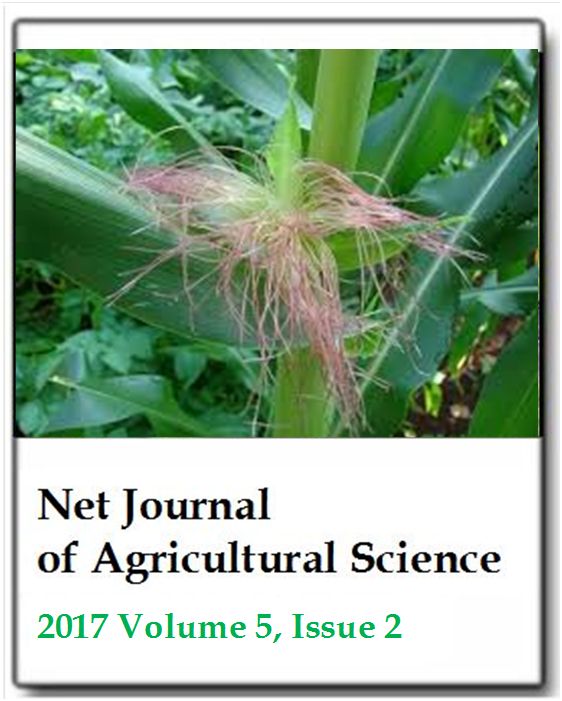Changes in the activities of metabolic enzymes and antioxidant defense system in 'Candidatus phytoplasma solani' infected pepper (Capsicum annuum L.) plants
Irada Huseynova, Gulnara Balakishiyeva, Durna Aliyeva, Ulduza Gurbanova, Jamila Bayramova, Nurmammad Mustafayev and Jalal AliyevNet Journal of Agricultural Science
Published: June 14 2017
Volume 5, Issue 2
Pages 58-65
Abstract
Phytoplasmas are pathogens of important annual crops as well as perennial cultures, causing different symptoms that ranges from yellowing to death of infected plants. The aim of the present work was to analyze the changes in the activity of metabolic and antioxidant enzymes, as well as in the content of total soluble sugars, tocopherols, and total phenolic compounds in field-grown pepper plants (Capsicum annuum L.) under the influence of phytoplasma infection. The activities of benzidine peroxidase (BPO) and guaiacol peroxidase (GPO) were observed to increase in infected pepper leaves in comparison with the healthy control. According to the native polyacrylamide gel electrophoresis (PAGE), the levels of studied antioxidant enzyme isoforms were enhanced under pathogenesis. Activities of aspartate aminotransferase (AsAT) and alanine aminotransferase (ALAT) were also increased in the infected plants compared with healthy plants. The amount of tocopherols, soluble sugars, and total phenols was significantly higher in leaves due to the phytoplasma infection. In conclusion, all of the observed alterations could be considered to be the response and the adaptation ability of pepper plants against pathogen infection.
Keywords: Capsicum annuum L., 'Candidatus phytoplasma solani', metabolic enzymes, peroxidase, soluble sugars, tocopherols, phenolic compounds.
Full Text PDF
ISSN: 2315-9766
